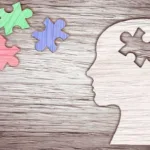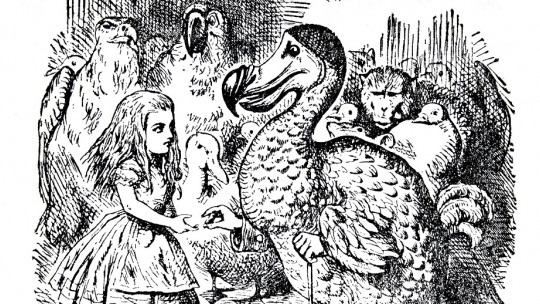It is estimated that, throughout his life, one in four people will suffer from some type of mental disorder the most frequent being those linked to anxiety and depression. The treatment of these problems and disorders can be approached in multiple ways from psychology, one of the most common being the use of behavior modification techniques.
Within these techniques, The use of third generation therapies is increasingly common which modify behavior while working on aspects such as the patient’s relationship with the problem and the context in which the patient lives.
Behavior modification therapies
When we talk about third generation therapies we are talking about one of the most recent types of behavioral therapy, developed taking into account the limitations of its predecessors. To understand what they are, it is first necessary to remember what a behavioral technique or therapy is.
The person with a mental disorder usually experiences deep discomfort as a result of carrying out or the effects of carrying out behavioral and thought patterns that do not serve them efficiently to explain or interact with the world, resulting in non-adaptive behavior and being limited. in work and/or thought.
Behavioral or behavior modification techniques are based on the idea that it is possible to modify a person’s behavioral and cognitive patterns through the application of different techniques based on learning. Although the past is taken into account when analyzing how we reached the current situation, the work to be done focuses on the current problems and symptoms and how to change them.
The modification of said patterns or the acquisition of others will allow the subject can have a more adaptive behavior, fighting and facing the symptoms of their problem in a more or less direct way and allowing the relief of the subject’s suffering and the optimization of their abilities and functionality as a human being.
What are third generation therapies?
Third generation therapies or the third wave of behavioral therapies are that set of therapies and treatments created with the purpose of carrying out a modification of the patient’s behavior but from a global approach and close to the person rather than the problem, taking into account the patient’s experience of their problem and how the social and cultural context has caused their behavior to be poorly adaptive.
Unlike other behavior modification techniques, third generation therapies are based on the power of context and dialogue to achieve said modification through acceptance of the problem by both the patient and the therapist.
Your goals
The main objective of this type of therapies involves changing the way the treated individual perceives the problem without attempting extreme control or extirpating their behaviors as if they were something to be ashamed of, but helping them to observe and rethink the relationship between said behaviors and the functionality that has been given to them, as well as the connection with their usual functioning, modifying them from acceptance.
That is to say, the need arises to see treatment not as a fight against symptoms, but as a vital reorientation that allows generating significant, real and permanent changes.
Third generation therapies They make up for some of the shortcomings of their predecessors such as the lack of focus on the specific aspects of the treatment that produce improvement, the provocation of rigid behaviors that in turn may be poorly adaptive and the little attention paid to the patient’s usual communicative context, as well as the perception of one’s own suffering. .
Some relevant aspects of these therapies
Third generation therapies have a series of characteristics of great interest in the treatment of psychological problems.
Firstly, they consider that an individual’s behavior is not fully explainable if its context is not taken into account. If the treatment is reduced to treating symptoms directly without taking into account the variables that make the behavior useful or necessary for the patient, the generalization of the treatment to real life will be complicated for the individual being treated.
Another aspect to consider is that third generation therapies take into account the modulating influence of language the fact that what other people tell us and what feedback they give us regarding our behavior will make us see the behaviors carried out in one way or another.
The therapeutic relationship
Linked to the previous point, it is notable that third generation therapies give a fundamental role to the therapeutic relationship.
Although this is common to all or almost all types of existing psychological therapy, in the case of third generation therapies this relationship is seen as an element or instrument of change per se, as a communicative and social interaction occurs that can modify the conduct directly or indirectly. Other types of therapy, although they consider the therapeutic relationship to be fundamental, see it more as the means by which the patient applies the techniques and not as something that produces a modification in itself.
Beyond the symptoms
Finally, and as has already been seen previously, treatment using third generation therapies involves working with deep aspects of the person, going beyond the presence of symptoms to act on subjectivity and personal perception so that one can act on aspects such as life goals, self-perception or the feelings and emotions caused by both problem situations and other life circumstances that may have led to the disorder.
Three third generation therapies
Although they are not the only ones (there are also others such as cognitive therapy based on Mindfulness, behavioral activation therapy or integrated behavioral couple therapy), three examples of third generation therapies are briefly explained below.
Functional Analytical Therapy
This therapy focuses on the functional analysis of behavioral patterns exploring not only the problem behavior but also the purpose of the behavior and that other behaviors are carried out with the same purpose and placing special emphasis on the therapeutic relationship and verbal communication, while taking into account that the behavior is determined by a large number of variables.
It is about help the client identify clinically relevant behaviors help analyze what is behind it, provoke said behaviors and adaptive alternatives, genuinely reinforce those that imply improvement and help give an explanation and interpretation to the behavior so that it can be applied to other vital contexts.
Acceptance and Commitment Therapy
This technique is one of the best known within third generation therapies, its main objective being to help the patient self-discover the patient’s fundamental values and help them accept the pain of searching for a happy life. It mainly focuses on work on values without evading or pathologizing suffering.
Through self-acceptance, observation of what we think and what beliefs these thoughts provoke in us, and focusing on what is current, we seek to guide the patient to become involved and committed to following their own values regardless of what society dictates, living as one believes that it should be lived.
Dialectical Behavior Therapy
Another of the best-known therapies within the third generation, dialectical behavioral therapy has been designed in order to Help patients with serious emotional problems that induce self-destructive behavior, such as self-mutilation or suicide attempts.
Currently one of the therapies of choice when treating Borderline Personality Disorder, it is based on the acceptance and validation of the patient’s suffering to work dialectically and through various modules to control and manage extreme and unstable emotions. The patient is helped to trust her emotions and thoughts and is helped to find factors that push you to want to move forward and to improve their skills related to emotional self-regulation, tolerance to discomfort, self-observation and management of interpersonal relationships.
Bibliographic references:
- Mañas, I. (sf). New psychological therapies: The third wave of behavioral therapies or third generation therapies. Psychology Gazette, 40; 26-34. University of Almeria.









